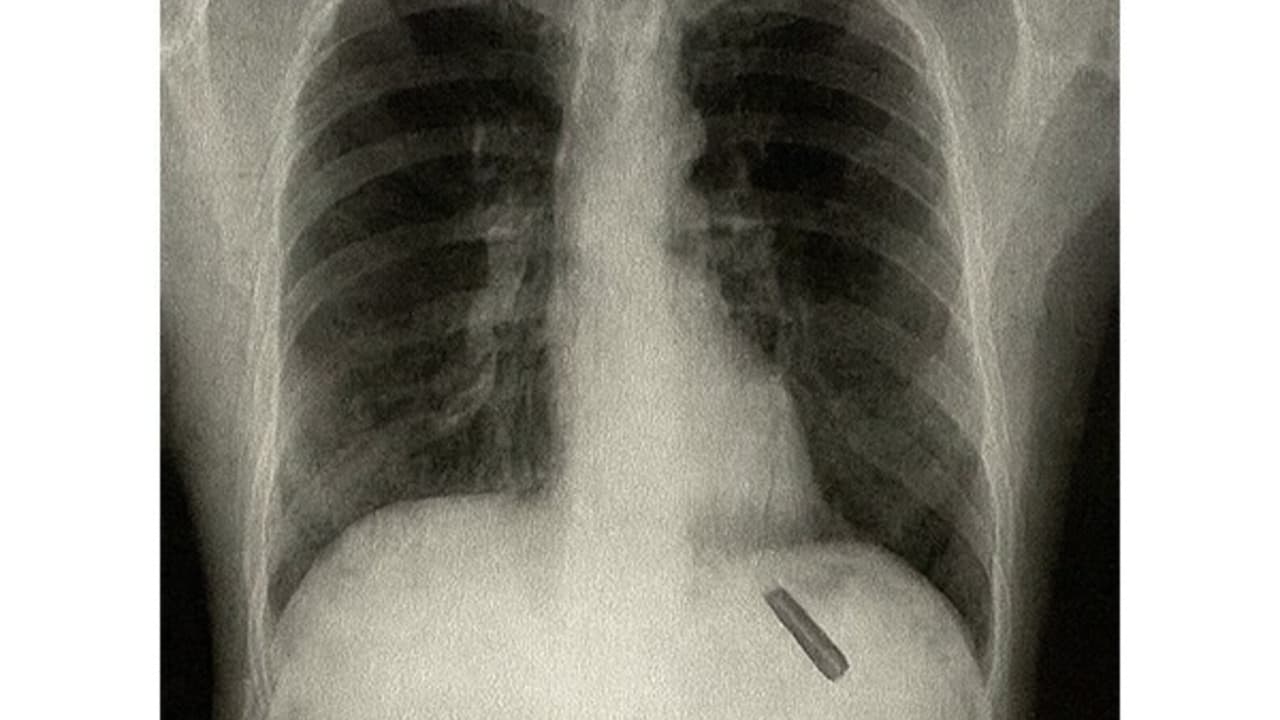Delhi doctors removed a pen cap stuck in a patient’s lung for 26 years, while another team saved a 9-month-old baby suffering from a rare metabolic disorder through timely critical care and advanced dialysis treatment.
In an unusual and extraordinary medical case, doctors at Sir Ganga Ram Hospital in Delhi successfully removed a plastic pen cap from the lung of a 33-year-old man. The object had remained lodged there for 26 years. According to the hospital, the patient had accidentally swallowed the pen cap when he was just 7 years old while playing. Surprisingly, he did not face any major health issues for years. Recently, however, he began to suffer from persistent coughing and noticed traces of blood in his sputum.
Doctors conducted detailed investigations, including an X-ray, which confirmed the presence of a foreign object inside his lung. Considering the risks, the thoracic surgery team led by Dr. Sabyasachi Bal, Chairperson of Thoracic Surgery at Sir Ganga Ram Hospital, decided to operate. During the surgery, doctors were astonished to find the pen cap intact and successfully removed it after 26 long years.
Doctors on the ‘extremely rare case’
Dr. Roman Dutta, Consultant in the Department of Thoracic Surgery at the hospital, said this was an extremely rare case. “A foreign object remaining in the lung for such a long period without life-threatening complications is very unusual. But such cases can be dangerous over time, leading to infections, bleeding, or other serious problems,” he explained.
The patient is now recovering well and is stable. Doctors advised that any suspected swallowing of foreign objects, especially in children, must be taken very seriously and treated immediately to prevent long-term complications.
Infant rescued from life-threatening disorder
In another critical case, doctors at Rainbow Children’s Hospital in Malviya Nagar, Delhi, saved the life of a 9-month-old baby suffering from a rare metabolic disorder. The infant was admitted in a deeply comatose state and developed severe respiratory failure, liver enlargement, and a dangerous drop in blood pH levels.
The child had a five-day history of poor feeding and breathlessness before being rushed to the emergency ward. Doctors found that her condition was linked to a suspected inborn error of metabolism. The baby was placed in the Paediatric Intensive Care Unit (PICU), intubated, and put on mechanical ventilation.
Considering the seriousness of the case, the medical team decided to start dialysis, which is rarely performed on infants of such a small size. With the expertise of the hospital’s paediatric nephrology team, doctors carried out continuous renal replacement therapy (CRRT). This advanced treatment helped remove the toxic substances from her body and stabilised her condition.
The infant showed remarkable improvement and was discharged from the hospital within just four days. Doctors said this case highlights the importance of quick medical intervention in rare disorders and the role of advanced technology in saving lives.
(With ANI inputs)
